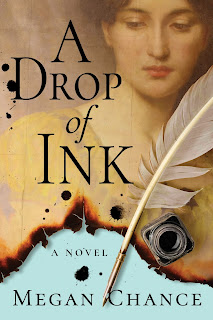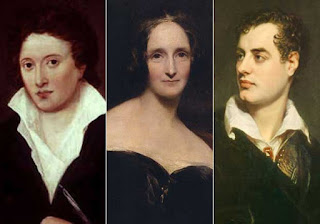James Michener, one of my favorite authors, could have written a tale set in an Ottoman world, for he was fond of complex human identities. He even spoke of mixed ethnicities, for which he coined the term Golden Men in his best-selling novel, Hawaii.
Kathryn Gauci's The Embroiderer has much of the Golden Men in it - but here though, we should speak of Golden Women. Eleni Stephenson, the first woman we meet in the novel, is after all an impressive blend of Greek, French, Russian and English. Meanwhile, her Greek heritage bears an undeniable Ottoman influence.
James Michener never wrote The Embroiderer. But he could have. It is perfect.
A vivid, cinematic tale, The Embroiderer is a richly woven family saga beginning during the Ottoman Empire through to its downfall and ending in the 70s. On the light side, it is a tale that travellers and those who seek culture, and oriental history will love. But it is also a tale of love, survival, loss, revenge, and the search for one's identity. It unravels the lives of four passionate women: Eleni Stephenson, her aunt, Maria, her grandmother, Sophia, and her great-great-grandmother, Dimitra.
Most of the story centers on the talented and shrewd Sophia who lives in the cosmopolitan Smyrna (modern day Izmir) during the early 20th century. Following in the footsteps of her embroiderer grandmother, Dimitra, Sophia runs a successful fashion boutique catering to an elite clientele, both Turkish and Greek. In a world where both Greeks and Turks have over centuries, inherited deeply felt resentments, Sophia becomes swept up in a complex and dangerous political climate, spanning the Balkan Wars, the Great Fire of Smyrna, the genocidal crimes that pitted Turks against Greeks and Armenians, and the dramatic emigration of Greeks from Turkey to Athens.
Through Sophia's life, we meet a vast cast of touching and fascinating characters. Even the minor characters are so well-portrayed that their fate keeps the reader interested.
Both Dimitra and Maria were intriguing to me. Dimitra was my favorite character because of her enigmatic and old world quality. As for Maria, given the hostility and romantic disappointments she had to face in her life and her desire to be loved and admired, I thought that her psychology was well-executed.
The Embroiderer was a fantastic, entertaining read with much depth. There is never a moment where the story loses momentum or wavers. There are two mysteries to keep one reading - what happened to the baby we learn of in the first chapter? And will the fortune-teller's prediction come true and how? Yet even without those two questions, the reader is enthralled by this hybrid Ottoman-Balkan world of romance, glamour, espionage, political turmoil and family drama.
When dealing with the political, The Embroiderer offered a well-balanced view of both Greek and Turkish sides, never judging or aligning itself to an ideology. It was more focused on the theme of revenge. Revenge is explored both at the individual level and on a mass social level. Both times it is portrayed as senseless, a series of actions that reap no rewards. The rich quote that accompanies this theme opens the story, and resurfaces later, where it makes a high impact.
Smyrna by Ahmet Ziya Akbulut
I learned so much from this novel. After reading it, my mind wandered to Smyrna and what it must have looked like before the Great Fire. I read up about the great famine that overtook Greece during World War II - a part of history I ignored and which this story touches on. The author's knowledge of the secret societies was intriguing while the historical detail on the whole was exceptional without being overwhelming or tedious.
Kathryn Gauci is a gifted storyteller whose passion for her subject showed. I am ever grateful that she has penned this masterful tale. Some stories change you. This is one of those.
Turkish Cafe in Smyrna
by Johann Michael Wittmer the younger
















